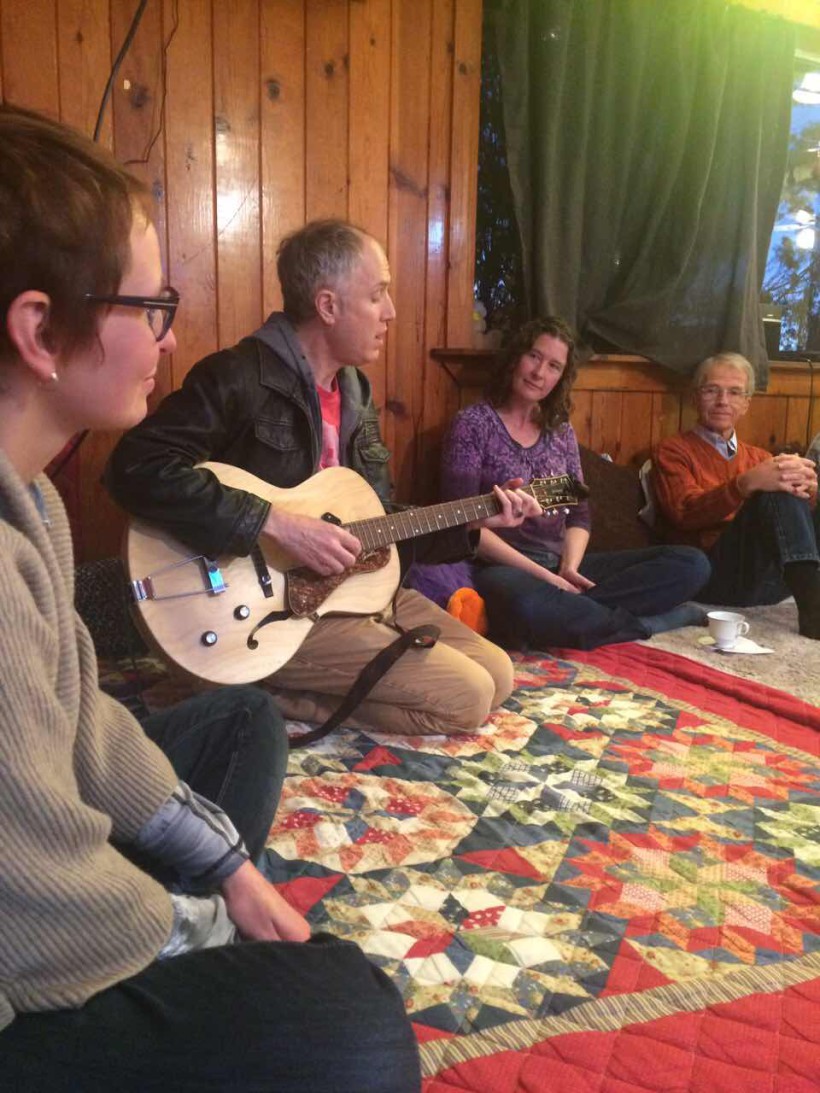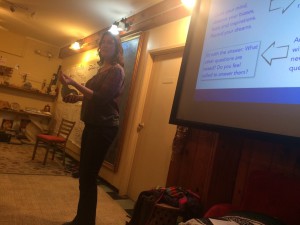|
Every Sunday at 5pm at the Russian House #1 we have intellectual club. Using our intellect we are looking for new instruments that will help us to know ourselves and improve the process of self-development. And during the exploration, we invite progressive scientists, philosophers, authors, which share with us their ideas and insights. On December 18 we had on a visit Julia Mossbridge with a highly interesting and fascinating lecture .Julia is a scientist always staying on the front line of the modern science. I have already attended Julia`s lectures during the Non-duality conference and I was moved by how she was sharing with the audience her knowledge – vividly and from the bottom of her heart. I have even decided that Julia is Russian, as all she told was clear to me and it seemed to me that she was speaking my native language. Although it was English I felt similarity.That is why I was in expectation of club`s meeting and Julia`s speech.The science in itself caused me alertness because scientific knowledge seems to me abstract and distant from the live human and his necessity.That is why I was interested in a fresh look at this question. The meeting of the club begins unconventionally with a performance Julia`s husband, who executed the emotional song playing guitar.In my opinion, it united us and created an informal atmosphere. ‘It so great when the speaker doesn’t keep the audience at arm’s length, and makes a close circle, in which the level of perception of information and interactivity rises’, thought I. Then Julia told about herself, about childhood. She began her story from child`s photo, where she run and play with her sister – learn to fly.The photo was fuzzy and obviously old. And it made the atmosphere more emotional as this old photo erased the feeling of glossy and ideality. ‘Julia is a live person, such as she was in childhood’, felt I. In the photo she involved into the science – she learned to fly disposing her jacket in different positions. This is a science of playing with the world and explore the world around. Julia drew a beautiful analogy with a dance, that the science is a dance with reality. You make a supposition, a step towards the world and say ‘Is this organized in such way?’ The world answered, ‘Well, nearly’. Then you make another step – and the world answered that you are already at hand, but it is not completely what you are looking for. Now and again, you make new steps and finally you get the answer. It touched me as it really differed from dry science, which I have seen before. Also, Julia talked about mistakes. And mistakes are just conjectures and a dance with the world too. And then she gave two paradigm – how the world was explored through the glance of classical science, and how she realized it. I was surprised and inspired how all this is close to what we do in Russian House – PostNonclassical science, that include the interaction with the world as a subject Only one thing remains to be clarified – has Julia an extra aim, the border that she would like to step over. As I believe in the possibility of a lucid moment, my goal is to get over myself and transformation. I hope to understand how to achieve this goal better from her books.
|




Leave a Reply
You must be logged in to post a comment.